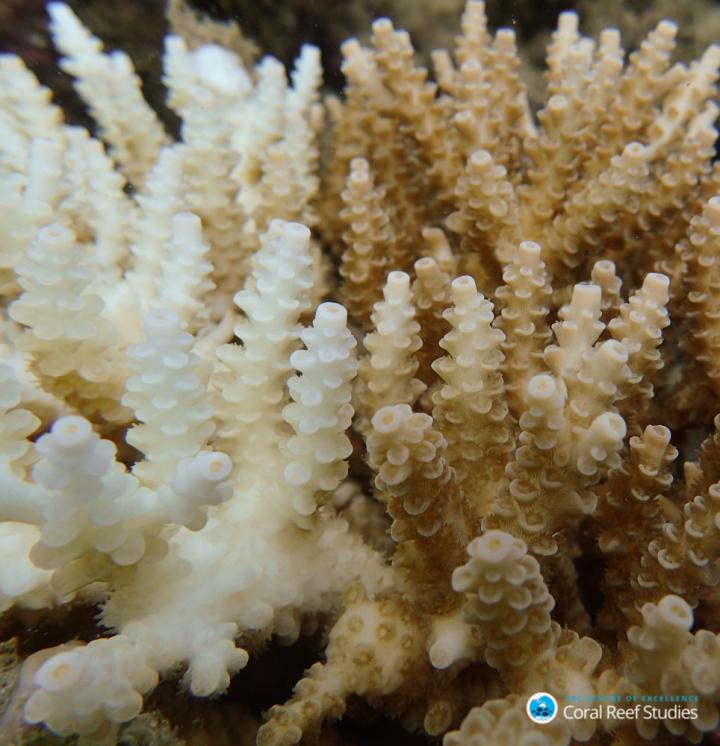North Queensland floods could cause ‘freshwater bleaching’ of GBR

Credit: ARC Centre of Excellence for Coral Reef Studies/Greg Torda
New research confirms that drastic changes in ocean salinity from, for example, severe freshwater flooding, as recently experienced off the coast of north-east Queensland from abnormal monsoonal conditions, provoke a similar stress response in corals as extreme heating, resulting in “freshwater bleaching” and if unabated, coral death.
Researchers from the ARC Centre of Excellence for Coral Reef Studies at James Cook University (Coral CoE) and University of Technology Sydney (UTS) report that extreme and sudden changes in salinity, or the ocean salt concentration, cause a biochemical response in corals that is similar to marine heatwaves, but in some ways, more damaging to their cells ability to function.
“Corals are sensitive organisms, known to only tolerate slight changes in their environment. Thriving in clear, sunlit waters – the majority of reef-building corals are found in tropical and subtropical waters with a salinity between 32 to 42 parts per thousand,” said senior author Prof David Miller of Coral CoE.
“During the recent flooding, there are reports that nearshore reefs were exposed to roughly half the normal ocean salinity.”
“Our research shows that this kind of environmental change causes a shock response in corals that prevents normal cell function.”
The researchers used the sequenced genome – a biological blueprint – of the common reef-building coral, Acropora millepora to detect changes in the coral’s biology.
“Using the sophisticated labs at the National Sea Simulator, we put both young and adult corals under a salinity stress test to see how they respond to differing salinity concentrations,” said co-author Dr Jean-Baptiste Raina of UTS.
“We found that there was a common response between both coral life-stages – with the younger corals being more sensitive to low salinity conditions, but faring slightly better with exposure over time.”
“In general, we found that the coral’s cells launch a similar chemical response to reduced salinity as they do for heat stress,” Prof Miller explained.
“However, unlike the heat stress response, corals exposed to reduced salinity experience a complete collapse of their internal cellular protein balance, suggesting that their cells are in deep trouble.”
Although the central Great Barrier Reef may have been spared mass thermal bleaching due to higher-than-normal ocean temperatures this summer, there are many coastal reefs left battling dramatic changes in water conditions from the massive plumes of floodwater.
With the frequency and severity of heavy rainfall and runoff events predicted to increase by 2050, management interventions to increase the resilience of reefs are needed now more than ever.
###
The paper “Transcriptomic analysis reveals protein homeostasis breakdown in the coral Acropora millepora during hypo-saline stress” is published in the journal BMC Genomics.
Images are available here: https:/
Contacts for interviews:
Prof David Miller, ARC Centre of Excellence for Coral Reef Studies at James Cook University
E: [email protected]
Dr Jean-Baptiste Raina, UTS – Climate Change Cluster
E: [email protected]
FOR MORE INFORMATION
Catherine Naum
Communications Manager
ARC Centre of Excellence for Coral Reef Studies
P: +61 (0) 0428 785 895, +61 (0)7 4781 6067 (AEST/ GMT +10)
E: [email protected]
Media Contact
Catherine Naum
[email protected]
Related Journal Article
http://dx.




